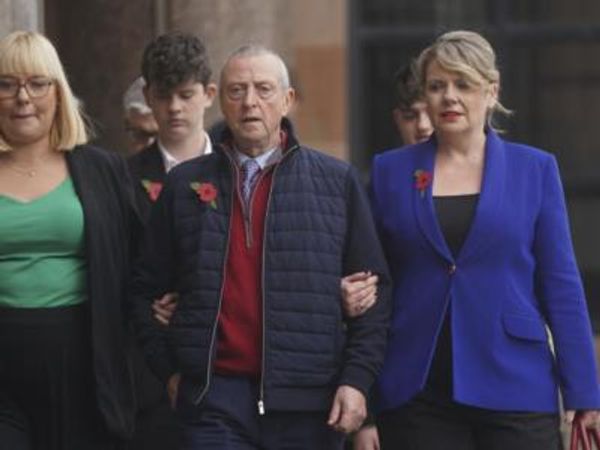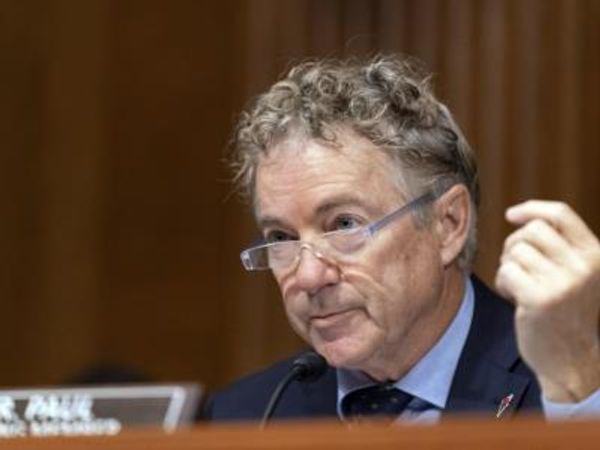
Anthony Albanese will meet China’s freshly reinstalled leader Xi Jinping at the G20 meeting in Bali this afternoon, ending a lather of speculation by Australian media that has all but ignored other major issues at the summit season in South-East Asia, which rolls on to the Asia Pacific-Economic Cooperation (APEC) meeting in Bangkok tomorrow.
These issues include the horrific and continuing conflict in Myanmar, Timor-Leste’s path to membership of the Association of Southeast Asian Nations (ASEAN), the split in regional attitudes to the conflict in Ukraine, and Australia’s relations with a raft of important nations in the region such as Indonesia, Japan, Korea, Vietnam and Singapore where we can make positive headway in trade and security.
Certainly the meeting is important as it is the first between leaders of the two countries since Xi met with Malcolm Turnbull in 2016. Yet there are likely to be few immediate outcomes despite the delphic utterance that China would “meet Australia halfway” by China’s lame duck premier Li Keqiang.
Even if it did mean something, Chinese and Australian versions would be completely different. Albanese’s comment that his bar of success for the meeting was the meeting itself is much closer to the mark. He is simply cautioning that this is the next, albeit major, step in the thawing of the relationship between the two countries under Labor, and comes after a flurry of ministerial meetings including two between Foreign Affairs Minister Penny Wong and her counterpart Wang Yi.
In diplomacy these things matter, acting as external signs — particularly to the Chinese bureaucracy — that wheels of the relationship are once again beginning to turn. “Out of dialogue comes understanding, and we need more [of that] not less, in today’s uncertain world,” Albanese said in Phnom Penh.
The meeting was clearly China’s call and the description of “no preconditions” precisely the same language that has been used by Chinese ambassador to Australia Xiao Qian in promoting such a meeting in recent months. Apparent attempts by the likes of Andrew Forrest to claim some credit through “back channels” are risible.
The meeting comes after Xi held his first face-to-face meeting with US President Joe Biden in his current role. It was a three-hour, very forthright marathon between two men familiar with each other. Both stressed avoiding competition turning to conflict so the temperature has been dialled down for now.
Albanese met Biden on Sunday for 40 minutes as the US leader sought input for his chat with Xi. The pair discussed the AUKUS pact over which South-East Asian nations, especially Indonesia, are concerned in the context of a regional arms build-up and about which Albanese sought to allay fears in his address on Friday.
Indeed, there are China observers who pour scorn even on the concept of Australia-China relations, believing that the primary role for Australia — beyond obvious trade deals — is something of a go-between with the US.
Albanese has made clear that he won’t bend the knee to China. But the stark reality is that Chinese investment and influence will continue to increase in South-East Asia, and Australia has to accommodate that, as well as being prepared to try to counter that where needed.
Indeed, Wong laid out the government’s approach to China in her Whitlam Oration on Sunday.
“Stabilising our relationship is in the interests of both Australia and China,” she said. “It will take time, because our differences are not trivial… We will seek to navigate our differences wisely — something, in fact, we believe both our countries should do.
“And I have now met twice with my Chinese counterpart, Wang Yi, the first engagement at that level for some years. In those meetings I expressed Australia’s views candidly on a range of bilateral trade, consular and human rights issues, as well as regional and international security. And I have said to him that Australia’s approach will be calm and consistent. We seek to cooperate where we can and will disagree where we must. And we will engage in our national interests.”
As Wong said, it will take time. China has point-blank denied that it had instituted any particular trade sanctions on Australia so it can’t recant on those in word, only in deed. Australia has also taken China to the World Trade Organization and has blocked a number of seemingly non-controversial Chinese investments in Australia such as those in the dairy industry, so it’s not a one way street. Perhaps, though, Albanese can make some headway with detained Australians Cheng Lei and Yang Hengjun.
Some things are normalising somewhat. Chinese students are returning to Australia. Some exports such as wheat have picked up and there are hopes that other areas of halted trade will resume in the coming year. China trade bans have also forced lazy Australian exports to diversify their markets away from the China monopsony — which is positive in the longer term.
And it’s important to remember that China still very much needs Australian resources as much as we need the market, and this is an unspoken subtext of the meeting. This remains largely unchanged — although the coal winds blow, for want of a better metaphor, hot and cold. China’s efforts to build iron ore mines — with the help of Rio Tinto — in west Africa remains a long-dated project fraught with sovereign risk.
China has a long memory. It keeps an effective list and Australia is still in deficit. The recent announcement that US B52s — which are large enough for large nuclear bombs the media has been keen to highlight — will join the thousands of marines at the US Darwin base may prove the next spoke in the wheel.
While the media’s myopic focus will continue to be China, Albanese’s agenda in his summit swing will be much more focused on Asian leaders — as well as his meeting with Biden that is already in the bag. He has completed a busy schedule of leaders’ meetings at the double-header summits of the ASEAN and East Asian leaders in the Cambodian capital Phnom Penh at the weekend. He is also keen to continue his bromance with Indonesian leader Joko Widodo, the G20 host and with whom he can make more concrete gains — similarly other regional players including a rising Vietnam — than he can with Xi.
South Korea President Yoon Suk-yeol and Japanese Prime Minister Fumio Kishida are key partners also attending the summit swing.
In terms of the region itself, South-East Asia’s leaders — and the Australian government — continue to wrestle with the conflict in Myanmar. The military junta that seized power in February 2021 is battling rising insurgencies on multiple fronts as it continues to murder its own citizens and imprison thousands more as the National Unity government in exile continues to push for recognition.
ASEAN leaders banned Myanmar junta leader Min Aung Hlaing from attending the summit and demanded that Myanmar’s military “make measurable progress on a peace plan or risk being barred from the bloc’s meetings” as violence continues to escalate in the country.
It’s high time Australia dumped hopes that behind-the-scenes’ diplomacy will manage to free imprisoned Australian economist Professor Sean Turnell and ratcheted up sanctions to pressure the regime, at the very least.
It’s also worth noting that Albanese’s visit to Thailand later this week will be the first by an Australian prime minister in 19 years since John Howard attended the same meeting in 2003, an absence that is symbolic of the way Australia has let itself drift away from the region in recent decades.
One very positive note from the ASEAN summit was confirmation that Timor-Leste will be admitted as its 11th member, the first new member since Cambodia joined in 1999. The tiny nation will gain observer status from next year when its path to full membership will be agreed, something both sides understand requires plenty of work.
Australia can have a central, potentially nation-building role in helping its neighbour along this path, but that will require a deep, creative rethink in Canberra towards Timor-Leste’s oil and gas ambitions that would have the added bonus of keeping any serious Chinese investment out of the country.
Do you hold any high hopes for a warming relationship with China? Let us know by writing to letters@crikey.com.au. Please include your full name to be considered for publication. We reserve the right to edit for length and clarity.







